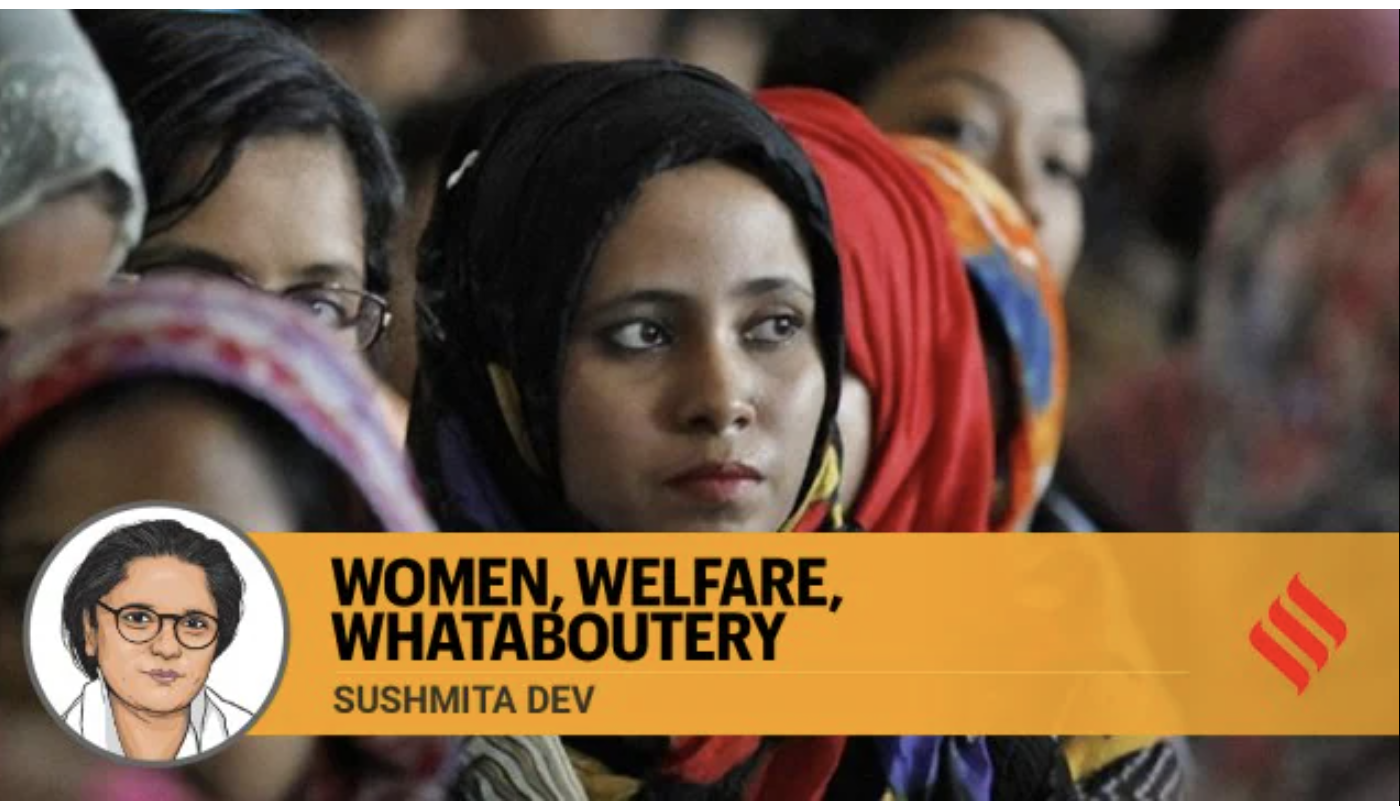Politics around women’s security undermines strides made towards their development
The BJP’s “double engine” hypocrisy has been exposed in Sandeshkhali. To remain silent because a crime against a woman is in a state where the government is with the party in power and to engage in vacuous hyperbole where the crime is committed in a state where an opposition party is governing, is hypocritical.
As we celebrate International Women’s Day, India stands tall on the count of women’s role in nation building. Significantly, what stands out in the last decade is the surge in the participation of women in politics. Even as the focussed issue remains women’s representation in Parliament and state assemblies, the more critical development since the Lok Sabha election of 2019 has been the increase in the number of women voters. Women voted in larger numbers, leaving the men behind by 0.17 per cent. These trends were consistent across constituencies.
This has compelled political parties to recognise that women are a unique section of voters with specific needs and demands that they cannot ignore anymore. Campaigns and manifestos are now designed to woo women voters and no leader can leave women’s issues out of their narrative.
Employment, healthcare, education, safety, aspirations, and the financial empowerment of women occupy a large space in almost every state’s governance model. The TMC’s leader, the only woman chief minister in India, Mamata Banerjee, secured about 50 per cent of the women’s in the 2021 Assembly elections as compared to 37 per cent for the BJP. The latter had a crushing defeat despite their slogan of “200 paar” in West Bengal. Despite the much-publicised slogan “Beti Padhao, Beti Bachao”, PM Modi, even in the 2019 Lok Sabha elections, could only secure 35 per cent of the women’s vote. This time, the BJP is talking about “400 paar” in the Lok Sabha. But they know that women voters of Bengal are standing between the BJP and their political aim.
I rely on West Bengal’s budget allocation for women and children to show an exceptional trend in women-centric governance. The state includes a separate Gender and Child Budget statement (2024-25). About 44 per cent of the resource allocation of the 2024-25 budget is towards women’s empowerment. There are flagship schemes for women in place. For example, Kanyashree Prakalpa provides financial assistance to the girl child, Lakshmir Bhandar covers a monthly cash transfer to female heads of the family for 1.98 crore women, Rupashree Prakalpa has given one-time help to 1.93 lakh beneficiaries to help cover the cost of their daughters’ weddings, Swasthya Sathi gives access to quality health care for women and their families with about 9.5 crores beneficiaries, while there are 37 Shakti Kendras (shelter homes) for women in distress. These are policy interventions designed to promote higher education amongst girls, deter child marriage and empower women in their households. They have won many international accolades like the UN Public Service Award 2017 and the United Nations World Summit on Information Society (WSIS) Prize 2016.
These giant strides in the holistic development of women cannot afford to leave out the crucial and sensitive issue of women’s security. It is often the most politicised. Political parties use these issues and react to gender crimes more aggressively as an election issue rather than as an opportunity to show real concern and ensure any tangible action. Any crime against women or children will force a societal outrage and there would be demands for accountability. But the politics of “my rape vs your rape” helps nobody, except political parties. Any citizen, who truly wants the women of India to be safe must reject this politics of selective outrage.
The BJP’s “double engine” hypocrisy has been exposed in Sandeshkhali. To remain silent because a crime against a woman is in a state where the government is with the party in power and to engage in vacuous hyperbole where the crime is committed in a state where an opposition party is governing, is hypocritical. It is aimed at cementing a section of women voters.
Prime Minister Narendra Modi remained silent for a long time on the crimes which took place in the BJP-ruled Manipur but took the opportunity to meet with the victims of Sandeshkhali in Bengal. Why has the PM not made a single visit to Manipur? If law and order in Bengal are being brought into question, then why the government in Manipur remains in power must also be questioned.
If anyone is outraged by the body language of the primary accused in Sandeshkhali when he was arrested, then they must be equally outraged by the fact that BJP MP Brij Bhushan Sharan Singh, accused of molesting our women champion wrestlers, sat comfortably till the last session of Parliament without any disciplinary action from the BJP. When a BJP MP from Bengal cried in the Rajya Sabha at the fag-end of her tenure about an incident of arson that killed two children, tears must also be shed for the two minor girls raped and hung from a tree recently in Kanpur.
Sandeshkhali has become less about the security of women victims and more about the women’s vote which is a stronghold of Mamata Banerjee. Accountability is a must, and no one should defend the indefensible. But let’s also reflect on the hypocrisy and politics around women’s security which attempts to eclipse the genuine welfare they have received.
The writer is Rajya Sabha MP, TMC
Excerpts: © The Indian Express Pvt Ltd First uploaded on: 08-03-2024




COMMENTS